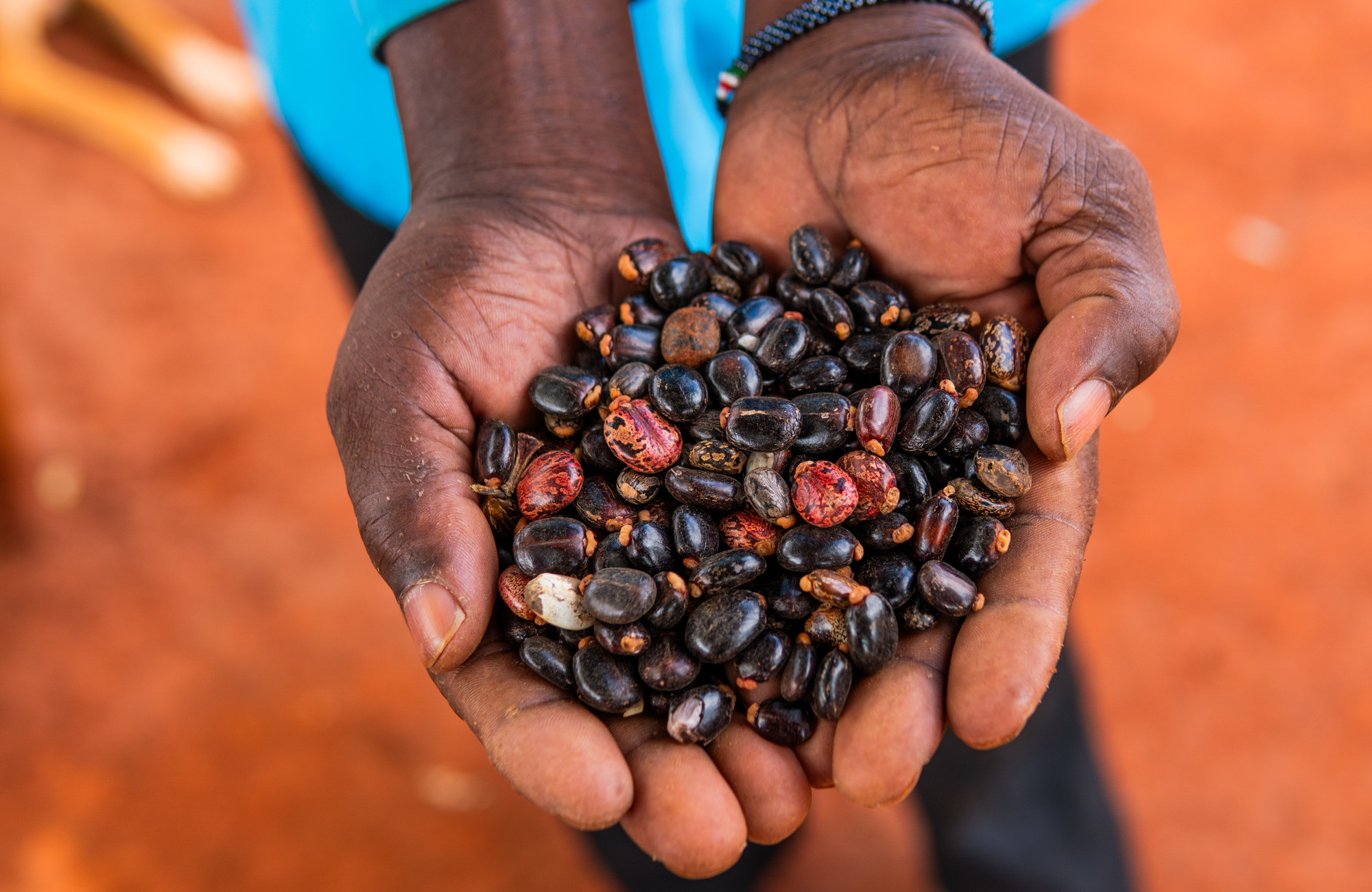Compared with other oil and gas supermajors, Eni has often flown under the radar of international public opinion. But the Italian oil giant has been dragged into the spotlight in recent years, following huge profits during the 2022 energy crisis sparked by Russia’s invasion of Ukraine, and then a climate lawsuit brought forth by Italian environmental NGOs. Now, a new investigation has uncovered widespread shortcomings with the company’s flagship ‘green’ projects in Africa.
Eni is one of the largest European oil companies and remains a textbook example of ongoing governmental support for the oil and gas sector. Political ties amongst oil majors and governments is prevalent in most European countries, but Italy goes one step further. The Italian state owns almost a third of the company, and when it comes to climate or foreign policy, the Italian Government and Eni speak with one voice. Eni’s CEO Claudio Descalzi stated in December 2023 that “Italy is ready to invest in Africa (…) this is also a necessity because energy is now flowing from south to north and we need to be the ones guiding this flow – for our sake and for Africa’s sake.”
Advocating energy extraction in Africa for Europe’s benefit harks back to Eni’s historical legacy from Enrico Mattei’s era in the 1950s. It was during this time that Mattei initiated exploration campaigns in North Africa and broadened the company’s political connections on the Continent, marking a significant chapter in Eni’s history.
Eni’s African strategy now takes a new form: that of a small thorny fruit, known as castor, traditionally used in Africa and elsewhere notably for medicinal and cosmetic purposes. This fruit now feeds an entirely new supply chain, with Eni aiming to export 170,000 tonnes of castor crops a year by 2026 to be refined as supposedly green fuel in Europe. Most of this will come from Africa, where the company has already secured deals with at least six countries.
Eni’s new strategy hinges on a two-fold bet. First, that it can champion biofuels as a credible climate solution, while ramping up investment in oil and gas extraction in the same countries it is using to produce biocrops. Eni is the third largest developer of new oil and gas projects in Africa, according to a recent report, and is leveraging its existing presence to develop green projects.
Secondly, that both European and African countries will embrace this ‘win-win’ scenario by which Europe gets greener fuels while helping the African continent benefit economically. Speaking to Bloomberg in a recent interview, Guido Brusco, who oversees Eni’s global oil and gas exploration, said that African nations had welcomed the biofuels projects because “they are very well aligned with their strategy to diversify the economy and also to provide employment”.
A year-long investigation by European NGO Transport and Environment (T&E), in collaboration with pan-African outlet The Continent, shows how severely this narrative falls short of its promises. In Kenya and the Republic of Congo – two African nations where the biofuels projects are purportedly most “advanced” – Eni is already failing to meet its castor production goals.
In Kenya, Eni produced less than a quarter of the promised 30,000 tonnes in 2023, while in the Republic of Congo, there are no signs of production ramping up from pilot projects. Several factors have hindered the progress of the biofuels projects in these countries, with one common trend: low yields preventing a significant increase in production. Eni has also encountered difficulties consolidating small production volumes through farmer cooperatives and brokers in Kenya, casting doubts on the viability of the small-scale farming model the company has promoted in its communications.
The investigation reveals that investing in so-called second-generation biofuels – which are not derived from food crops like soy or rapeseed – does not necessarily mitigate social and environmental challenges. Eni has stressed that castor farming for biofuel production will not compete with food production nor divert resources from existing agricultural practices. Castor crops have been touted as drought-resistant and are cultivated by small-scale farmers on arid land. These assurances appeared tailor-made for the Kenyan agricultural sector, which, as per the UN Food and Agriculture Organization (FAO), heavily relies on small-scale farmers predominantly engaged in rain-fed farming systems.
Field research in Kenya conducted as part of the investigation tells a different story. Castor farming, alongside traditional agriculture, has been adversely impacted by escalating drought conditions exacerbated by climate change- and the crop has proven challenging to sustain without irrigation. Additionally, many small-scale farmers have reported difficulties intercropping castor with their traditional crops such as beans and maize. They say that farming castor – sold to Eni at Ksh35 per kilo of shelled beans – about 0.22 euros with the current exchange rate- is not profitable for them. “The beans are lightweight; the prices are low. I would rather just plant beans and maize”, a farmer told T&E and The Continent.
Increased settlement of Kenyan farmers into dryer, more marginal areas has intensified risks of competition for natural resources and soil and environmental degradation, according to the FAO. The Kenyan Government has also put an emphasis on raising small-scale farmer incomes by 40 percent over the next five years in its current Agriculture Strategy. The extent to which Eni’s project aligns with Kenya’s vision for the agricultural sector looks increasingly uncertain.
In the Republic of Congo, Eni has encountered another array of challenges. The nation’s economy heavily relies on oil and gas, a dependence further accentuated by Eni’s push to develop the liquefied natural gas industry. The agricultural sector remains largely underdeveloped. Here, Eni’s endeavor to cultivate castor on large-scale concessions risks echoing the numerous setbacks that have plagued many first generation biofuel projects. The investigation has gathered testimonies that allege cases of expropriation when international agribusiness Eni is now partnering with settled in the country.
Eni maintains that its flagship green projects will improve with time. This sentiment appears to be shared by one of its primary project financiers, the World Bank’s International Finance Corporation (IFC), which intends to provide a loan for the project in Kenya. This optimism may stem from the broader political landscape within which oil majors operate—a landscape marked by a growing race among EU countries to secure new oil and gas resources in Africa while publicly promoting renewable projects. In many instances, multinational oil and gas companies are anticipated to take the lead.
Eni’s aggressive pursuit of biofuels expansion is not an isolated case. Across the oil industry, companies have set ambitious targets for biofuels to tout their climate credentials. Yet, this fervor conveniently sidesteps the urgent need to stop oil and gas extraction, which remains essential for meeting global climate goals.
The looming questions about the type and origin of the feedstocks used and their potential social and environmental impacts remain glaringly unanswered. EU governments have shown little inclination to grapple with these concerns. Perhaps it’s easier for policymakers to embrace new generations of biofuels than to implement systemic energy policy changes the world desperately need to maintain a livable future.
Agathe Bounfour is oil investigations lead at the European NGO Transport and Environment. Her work focuses on the fossil fuel sector and corporate strategies in the science and policy spaces.
Further reading:

- Opinion
- By Leandro Vergara-Camus
- 14 July, 2023






